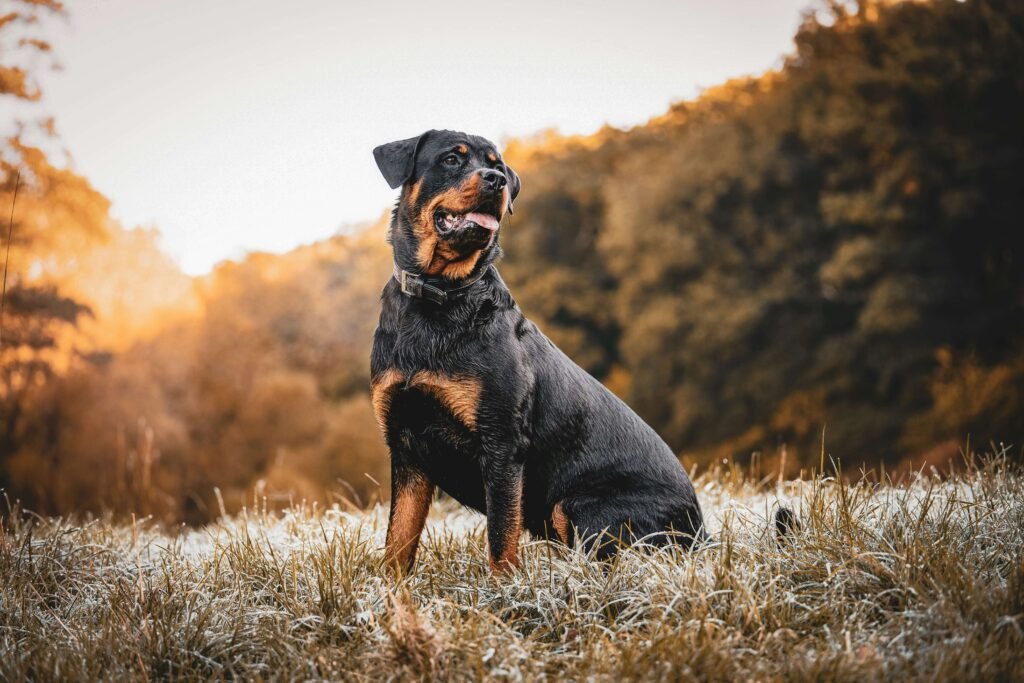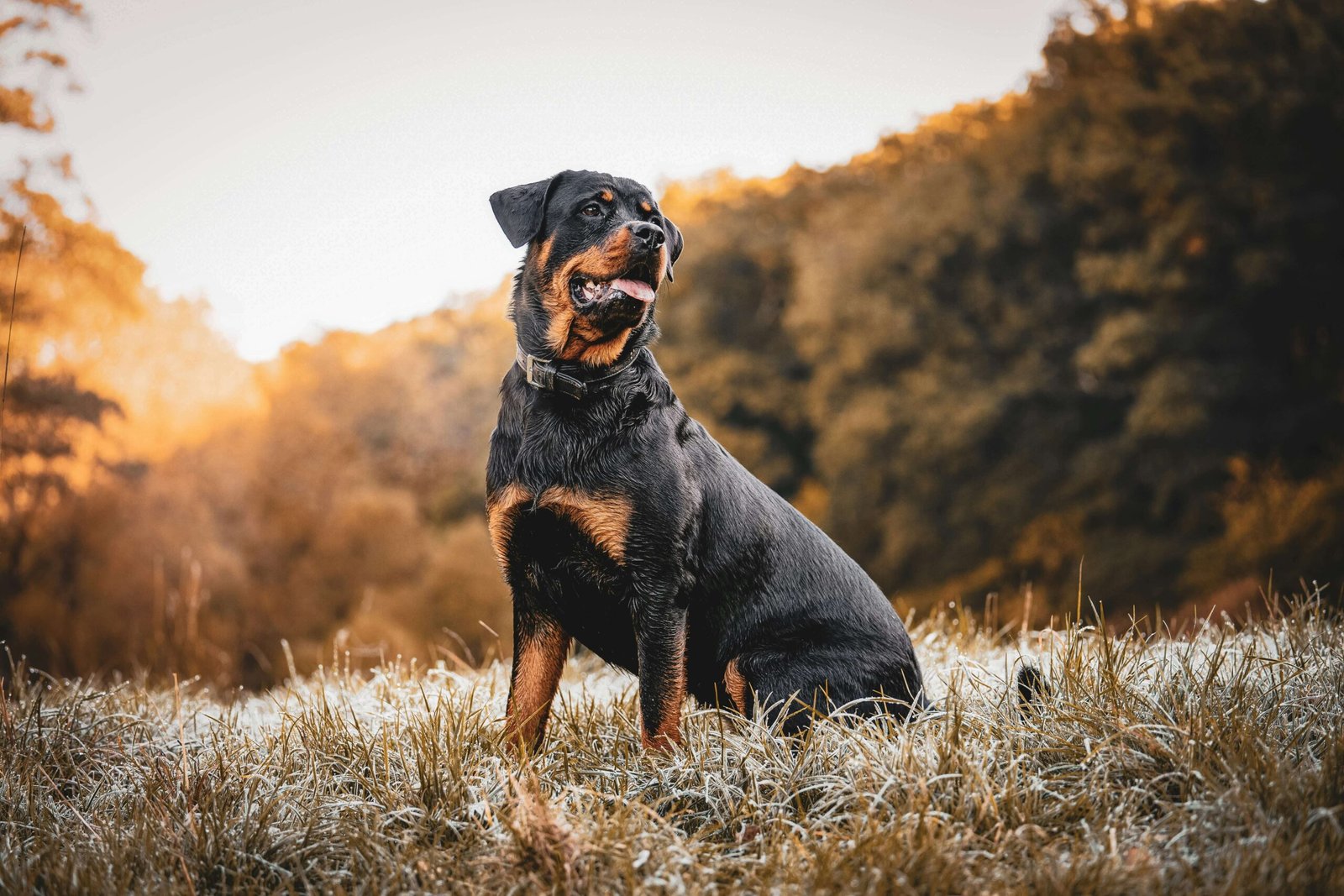The Best Dog Food for Rottweilers: Nourishing Your Loyal Companion
Rottweilers are known for their strength, loyalty, and protective nature, making them one of the most beloved dog breeds worldwide. However, these magnificent dogs require proper nutrition to maintain their health, energy levels, and overall well-being. Feeding your Rottweiler the right food is not just about keeping them full—it’s about ensuring they thrive throughout their life stages. From supporting their muscular build to promoting joint health and a shiny coat, the best dog food for Rottweilers plays a pivotal role in their longevity and happiness. In this blog post, we’ll explore everything you need to know about feeding your Rottweiler the right way.
Key Nutritional Needs of Rottweilers
When it comes to feeding your Rottweiler, understanding their specific nutritional requirements is essential. These large-breed dogs have unique dietary needs that differ from smaller breeds or even other large breeds. Here’s a breakdown of what makes their diet special:
High-Quality Protein:
Rottweilers need protein-rich diets to support muscle development and repair. Look for foods that list real meat as the primary ingredient.Balanced Fat Content:
Healthy fats provide energy and promote skin and coat health. Omega-3 and Omega-6 fatty acids are particularly beneficial.Controlled Calorie Intake:
Overfeeding can lead to obesity, which is a common issue in Rottweilers. Portion control is key to maintaining a healthy weight.Joint Health Support:
Large breeds like Rottweilers are prone to joint issues such as hip dysplasia. Foods with glucosamine and chondroitin can help maintain joint health.Digestive Health:
A diet rich in fiber supports a healthy digestive system, preventing issues like bloating or constipation.
By prioritizing these nutritional elements, you can ensure that your Rottweiler stays strong, active, and healthy. Remember, the right balance is crucial to avoid deficiencies or excesses that could harm your dog.
Top Ingredients to Look For in Rottweiler Dog Food
Choosing the right ingredients is just as important as understanding your Rottweiler’s nutritional needs. High-quality ingredients ensure that your dog gets the most out of every meal. Here’s what to look for when selecting dog food:
Real Meat as the First Ingredient:
Whether it’s chicken, beef, lamb, or fish, real meat should always be the primary component of your Rottweiler’s diet.Whole Grains or Grain-Free Options:
Some Rottweilers do well with whole grains like brown rice, while others may benefit from grain-free formulas. Choose based on your dog’s tolerance.Natural Antioxidants:
Ingredients like blueberries, spinach, and sweet potatoes provide antioxidants that boost immunity and overall health.Probiotics and Prebiotics:
These ingredients support gut health, aiding digestion and nutrient absorption.No Artificial Additives:
Avoid foods with artificial colors, flavors, or preservatives, as these can be harmful in the long run.
Selecting dog food with these ingredients ensures that your Rottweiler receives a wholesome and nutritious diet. Always read the label carefully to make informed choices.
Check this guide 👉5 Best High-Fat Dog Foods for Ultimate Energy & Health!
Check this guide 👉5 Best Grain-Free Dog Foods for Ultimate Health!
Check this guide 👉5 Best Gluten-Free Dog Foods for Ultimate Health Boost!

Nutritional Benefits | Recommended Ingredients |
|---|---|
Supports Muscle Development | Real Chicken, Beef, or Fish |
Promotes Joint Health | Glucosamine, Chondroitin |
Boosts Immune System | Blueberries, Spinach, Carrots |
Enhances Skin and Coat Health | Omega-3 and Omega-6 Fatty Acids |
Aids Digestive Health | Probiotics, Prebiotics, Pumpkin |
Common Mistakes to Avoid When Feeding Rottweilers
Feeding a Rottweiler might seem straightforward, but there are several pitfalls that owners often fall into. Being aware of these mistakes can help you provide the best care for your furry friend. Here’s what to watch out for:
Overfeeding:
Rottweilers have big appetites, but overfeeding can lead to obesity and related health problems.Ignoring Portion Sizes:
Always follow the feeding guidelines on the dog food packaging and adjust based on your dog’s activity level.Feeding Table Scraps:
Human food can be unhealthy or even toxic for dogs. Stick to specially formulated dog food.Skipping Regular Vet Checkups:
Regular vet visits can help monitor your dog’s weight and nutritional needs.Switching Foods Too Quickly:
Sudden changes in diet can upset your dog’s stomach. Transition gradually over 7–10 days.
Avoiding these mistakes ensures that your Rottweiler stays healthy and happy. Always prioritize consistency and quality in their diet.
Tips for Transitioning to a New Dog Food
Switching your Rottweiler’s food requires careful planning to avoid digestive upset. Whether you’re changing brands or introducing a new formula, here are some tips to make the transition smooth:
Start with a Small Amount:
Mix a small portion of the new food with the old food to allow your dog’s system to adjust.Gradually Increase the Ratio:
Over 7–10 days, slowly increase the proportion of new food while decreasing the old food.Monitor for Reactions:
Watch for signs of allergies or digestive issues, such as vomiting, diarrhea, or excessive itching.Stick to a Schedule:
Feed your Rottweiler at the same times each day to establish a routine.Consult Your Vet:
If you’re unsure about the transition process, seek advice from your veterinarian.
A gradual and thoughtful approach to transitioning dog food ensures that your Rottweiler adapts well to their new diet. Patience is key during this process.
Benefits of High-Quality Protein for Rottweilers
Protein is the cornerstone of a Rottweiler’s diet, playing a vital role in muscle development, tissue repair, and overall energy levels. Ensuring your dog gets enough high-quality protein is essential for their growth and vitality. Here are some key benefits of prioritizing protein in your Rottweiler’s diet:
Muscle Maintenance:
Protein supports the development and maintenance of lean muscle mass, which is crucial for active Rottweilers.Improved Energy Levels:
A protein-rich diet provides sustained energy, helping your Rottweiler stay active throughout the day.Enhanced Recovery:
After exercise or play, protein aids in repairing tissues and reducing recovery time.Healthy Skin and Coat:
High-quality protein contributes to a shiny coat and reduces skin irritations.Supports Immune Function:
Protein contains essential amino acids that strengthen the immune system.
Incorporating sufficient protein into your Rottweiler’s meals ensures they remain strong, energetic, and resilient. Always choose dog foods with real meat as the primary source of protein.
The Role of Fats in a Rottweiler’s Diet
Fats often get a bad reputation, but they are an essential part of a Rottweiler’s diet when provided in moderation. Healthy fats not only supply energy but also contribute to various bodily functions. Here’s why fats should be included in your Rottweiler’s nutrition plan:
Energy Source:
Fats are a concentrated source of energy, making them ideal for active Rottweilers.Joint Lubrication:
Omega-3 fatty acids help lubricate joints, reducing the risk of arthritis and other joint issues.Brain Health:
Essential fatty acids support cognitive function and mental sharpness.Improved Palatability:
Fats enhance the flavor of dog food, making it more appealing to picky eaters.Temperature Regulation:
Fats help insulate your Rottweiler’s body, keeping them warm in colder climates.
Including healthy fats in your Rottweiler’s diet promotes overall well-being and supports their physical and mental health. Opt for dog foods rich in omega-3 and omega-6 fatty acids for the best results.
How to Address Food Sensitivities in Rottweilers
Food sensitivities can be a challenge for Rottweilers, leading to discomfort and health issues if not addressed properly. Identifying and managing these sensitivities is key to ensuring your dog enjoys a balanced and nutritious diet. Here’s how you can tackle food sensitivities in your Rottweiler:
Identify Problematic Ingredients:
Common allergens include wheat, soy, corn, and certain proteins like beef or chicken. Eliminate these from their diet temporarily to observe changes.Choose Limited Ingredient Diets:
These diets contain fewer ingredients, making it easier to pinpoint the cause of sensitivities.Introduce Novel Proteins:
Novel proteins like duck, venison, or salmon are less likely to trigger allergic reactions.Monitor Symptoms:
Watch for signs like excessive scratching, ear infections, or gastrointestinal upset after introducing new foods.Consult a Veterinarian:
If symptoms persist, seek professional advice to determine the best course of action.
By carefully managing your Rottweiler’s diet and addressing potential sensitivities, you can ensure they enjoy their meals without discomfort. Patience and observation are key to finding the right solution for your dog.
Frequently Asked Questions About Feeding Rottweilers
How much should I feed my Rottweiler daily?
The amount depends on your dog’s age, weight, and activity level. Adult Rottweilers typically need 3–4 cups of food per day, divided into two meals.
Can Rottweilers eat grain-free food?
Yes, many Rottweilers thrive on grain-free diets, but it’s essential to ensure they still get all the necessary nutrients.
Are raw diets safe for Rottweilers?
Raw diets can be beneficial but come with risks like bacterial contamination. Consult your vet before switching.
What are the signs of food allergies in Rottweilers?
Symptoms include itching, skin rashes, vomiting, diarrhea, or chronic ear infections.
Should I give my Rottweiler supplements?
Only if recommended by your vet. Most high-quality dog foods already contain essential nutrients.
Final Thoughts: Nourish Your Rottweiler for a Happy Life
Choosing the best dog food for Rottweilers is an investment in their health, happiness, and longevity. By understanding their unique nutritional needs, avoiding common feeding mistakes, and selecting high-quality ingredients, you can provide your loyal companion with the fuel they need to thrive. Remember, every Rottweiler is different, so tailor their diet to suit their individual preferences and health requirements. With the right care and attention to their nutrition, your Rottweiler will remain a strong, energetic, and loving member of your family for years to come.
Cat Anaphylactic Shock Treatment Costs: Best 7 Expert Tips! – Learn about costs, treatments, and financial aid options to save your cat’s life.
Exocrine Pancreatic Insufficiency in Cats: Best 7 Tips! – Learn to spot symptoms, manage EPI effectively, and improve your cat’s quality of life with expert advice.
Cost of Dog Anaphylactic Shock Treatment: Best 7 Tips! – Learn about emergency costs, financial planning, and ways to manage expenses for your dog’s care.
Exocrine Pancreatic Insufficiency in Dogs: Best 7 Tips! – Learn to spot symptoms, manage EPI effectively, and improve your dog’s quality of life with expert guidance.





